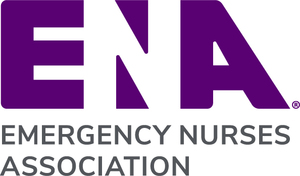Study: Change of Culture, Increased Training Needed to Reduce Violence Against Emergency Nurses
Emergency Nurses Association launched rare qualitative study
DES PLAINES, Ill., Feb. 4, 2014 /PRNewswire-USNewswire/ -- A qualitative study on assaults on emergency nurses sponsored by the Emergency Nurses Association (ENA) found a need to change the culture of acceptance prevalent among hospital administrators and law enforcement, as well as a need to better train nurses on signs of potential trouble.
(Logo: http://photos.prnewswire.com/prnh/20131217/DC35231LOGO)
"Assaults on emergency nurses have lasting impacts on the nurses and the ability of emergency care facilities to provide quality care," said 2014 ENA President Deena Brecher, MSN, RN, APN, ACNS-BC, CEN, CPEN. "More than 70 percent of emergency nurses reported physical or verbal assaults by patients or visitors while they were providing care. As a result, we lose experienced and dedicated nurses to physical or psychological trauma for days or sometimes permanently. Healthcare organizations have a responsibility to nurses and the public to provide a safe and secure environment."
According to Bureau of Labor statistics, an assault on a healthcare worker is the most common source of nonfatal injury or illness requiring days off from work in the healthcare and social assistance industry.
Despite that alarming statistic, the qualitative research study discovered a culture of acceptance among hospital administrators, prosecutors and judges. One emergency nurse assault victim related being told by a judge: "[W]ell, isn't that the nature of the beast, being in the emergency room and all?" Another told the researchers, the "administration will only take action when some lethal event happens."
In addition to, and perhaps in correlation to, the culture of acceptance, the study concluded that emergency nurses and hospital personnel in general are not trained to recognize cues for violent behavior.
"It is imperative that hospitals and emergency care workers address the issue preemptively through adoption of violence prevention education, zero-tolerance policies, safety measures and procedures for reporting and responding to incidents of workplace violence when they do occur," the researchers noted. "Such actions are necessary to help nurses recognize incipient violence."
The ENA has long taken the position that healthcare organizations must take preventive measures to circumvent workplace violence and ensure the safety of all healthcare workers, their patients and visitors.
"There will always be the potential for violence against emergency nurses," Brecher said. "But we must not accept it as the price of helping the sick and injured. With training and a change of culture, we can significantly decrease the occurrence of assaults against emergency nurses."
The study, which can be found at http://www.jenonline.org/article/S0099-1767(13)00561-8/abstract, was conducted using a qualitative descriptive exploratory design. In the fall of 2012, a sample of emergency room nurses was recruited by email from the roster of ENA nurses and through an announcement on the ENA website. Eight men, 37 women and one of unknown gender responded to the question, "Tell me about your experience of violence in the emergency setting." Answers were emailed to and analyzed by the Institute for Emergency Nursing Research. Only one other previous qualitative study is known to have been conducted to address workplace violence against emergency nurses in the United States since at least 2004.
About the Emergency Nurses Association
ENA, which has more than 40,000 members worldwide, is the only professional nursing association dedicated to defining the future of emergency nursing and emergency care through advocacy, expertise, innovation and leadership. Founded in 1970, ENA develops and disseminates education and practice standards and guidelines, and affords consultation to both private and public entities regarding emergency nurses and their practice. Additional information is available at ENA's Web site, www.ena.org or on Twitter: @ENAorg.
SOURCE Emergency Nurses Association
WANT YOUR COMPANY'S NEWS FEATURED ON PRNEWSWIRE.COM?
Newsrooms &
Influencers
Digital Media
Outlets
Journalists
Opted In





Share this article